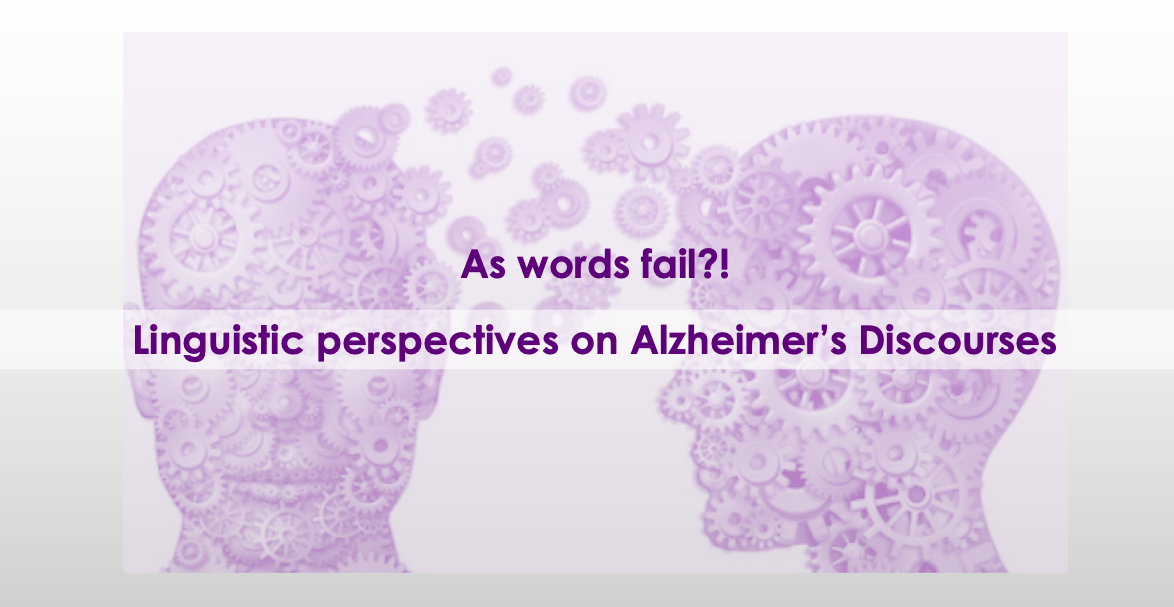“I used to know how the mind handled language, and I could communicate what I knew. I used to be someone who knew a lot. No one asks for my opinion or advice anymore. I miss that. I used to be curious and independent and confident. I miss being sure of things. There's no peace in being unsure of everything all the time. I miss doing everything easily. I miss being a part of what's happening. I miss feeling wanted. I miss my life and my family. I loved my life and family.” ― Lisa Genova, Still Alice
Alzheimer’s Disease (AD) is one of the most common types of dementia known in the western world. On the one hand, this course explores the following questions: How does verbal interaction work while living in different stages of the dementia? How does language and the meaning of language change? On the other hand, this class investigates how AD and people living with AD are represented in different discourse contexts.
We will examine examples of spoken and written discourse both of and about people living with Alzheimer’s dementia - conversations, interviews, public speaking, online discussions and mass media articles, to cite just some examples. Students will be encouraged to collect and analyze their own data for the final presentation.

- Lehrende(r): Birte Bös
- Lehrende(r): Carolin Schneider